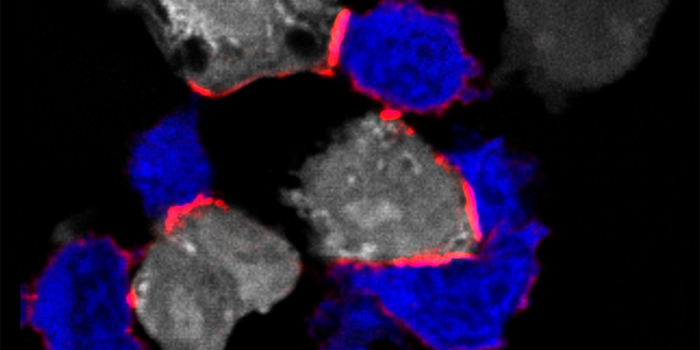Some studies, though only in mice so strictly observational, found that cancerous growths spread faster when the animals received a low-magnesium diet – and also that their defense against flu viruses was also impaired. Lacking a plausible biological mechanism for exactly how this mineral affects the immune system leaves such studies in the interesting but not clinically relevant camp.
A new paper makes some progress by finding that T cells can eliminate abnormal or infected cells efficiently only in a magnesium-rich environment. Specifically, magnesium is important for the function of a T cell surface protein called LFA-1.

Immunofluorescent image depicting T cells (blue) attacking tumor cells (white) by forming an immune synapse with LFA-1 (open headpiece conformation – labeled in red). A new study identified extracellular magnesium as a critical immune modulator of CD8+ T cells. Credit: J. Loetscher et al., Cell (2022)
LFA-1 acts as a docking site, which plays a key role in the activation of T cells. “However, in the inactive state this docking site is in a bent conformation and thus cannot efficiently bind to infected or abnormal cells,” co-author and University of Basel Professor Christoph Hess said. “This is where magnesium comes into play. If magnesium is present in sufficient quantities in the vicinity of the T cells, it binds to LFA-1 and ensures that it remains in an extended – and therefore active – position.”
The fact that magnesium is essential for the functioning of T cells may be a highly significant finding for modern cancer immunotherapies. These therapies aim to mobilize the immune system – in particular cytotoxic T cells – to fight cancer cells. In experimental models, the researchers were able to show that the immune response of T cells against cancer cells was strengthened by an increase in the local magnesium concentration in tumors.
That does not mean a regular intake of magnesium impacts the risk for developing cancer, that would first require prospective studies to test the clinical effect of magnesium as a catalyst for the immune system.






Comments